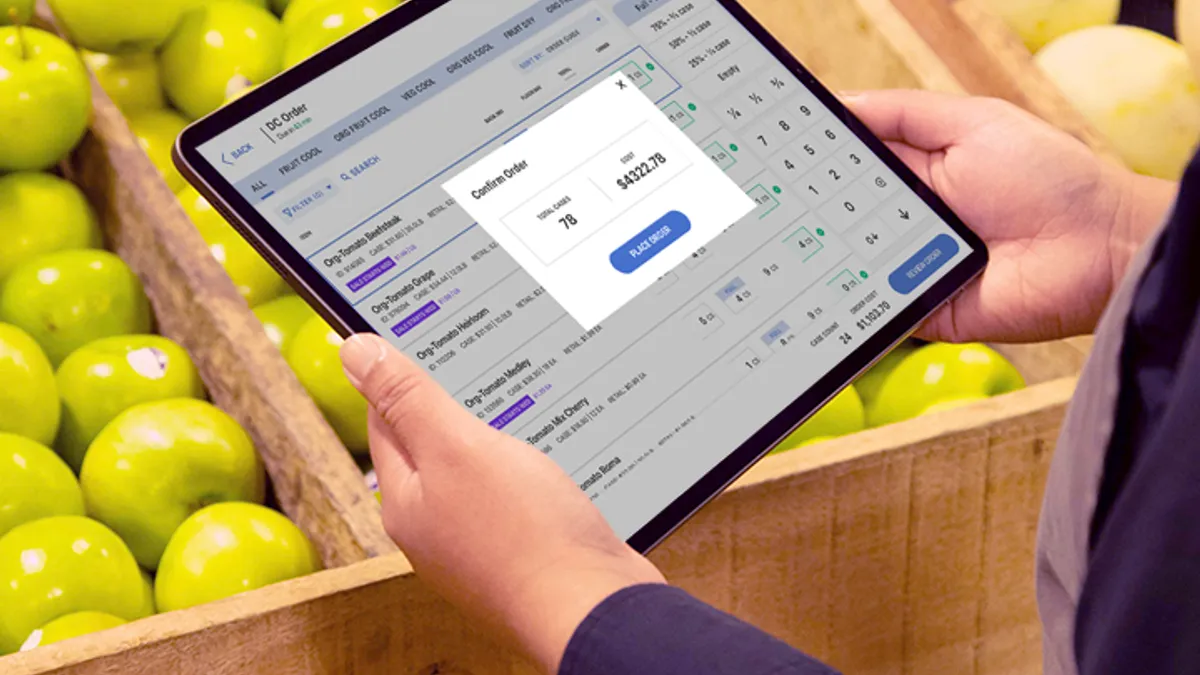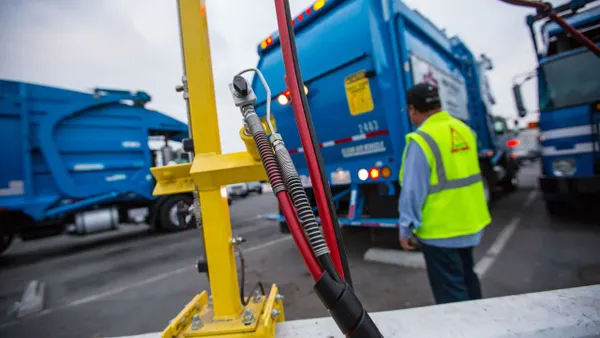Dive Brief:
- Afresh Technologies has started offering its food waste reduction technology to grocers for use in their meat, seafood, deli, and foodservice sections, building on the startup’s core business of helping retailers manage their produce operations, according to a Thursday announcement.
- Existing Afresh clients Cub Foods, Fresh Thyme Market and Heinen’s have agreed to adopt the company’s artificial intelligence-driven platform beyond their produce sections in connection with the company’s newly launched effort to expand its presence in grocery stores.
- Afresh is looking to tap into strong interest among supermarket operators in improving their ability to reduce spoilage in their fresh departments while also boosting the shelf life of perishable goods.
Dive Insight:
Afresh has made a name for itself by developing systems that evaluate variables like sales trends, delivery schedules, perishability and the weather and use that information to guide grocery store employees in placing orders for fruits and vegetables.
The company said in the announcement that grocers it works with have seen produce sales rise by an average of 3%, cut shrink by a quarter and stopped 31 million pounds of food from being discarded, adding that those results have spurred demand from retailers for similar solutions to apply elsewhere in their stores.
“We are taking the same approach of bringing easy-to-use, AI-powered tools to these historically underserved, strategically critical departments,” Afresh CEO and co-founder Matt Schwartz said in a statement.
Afresh also counts SpartanNash, Albertson’s, The Save Mart Companies and Bashas’ among its customers. The company, which was founded in 2017 and is based in San Francisco, brought in $115 million in a series B round of fundraising last August, noting that it intended to use the new capital to help bring its Fresh Operating System to grocery categories other than produce.
In announcing its expansion, Afresh said its strategy for developing inventory-management systems is founded on a conclusion that data about fresh food departments is imperfect. With that in mind, the company said, it designed technology to assume that information it processes contains errors and to take those flaws into account when making recommendations.
Afresh added that it has sought to develop a platform that requires relatively little worker training and found that workers are highly likely to use it as a result. Employees use tablet computers to place orders to enter information as they move around the store.
Afresh said it expects its technology to prove especially useful in meat departments, noting that it can help workers be more efficient by placing pre-filled orders for packages of fresh items that have longer shelf lives, such as bacon. Afresh’s platform can also help workers determine when to order items like chicken that spoil rapidly.












